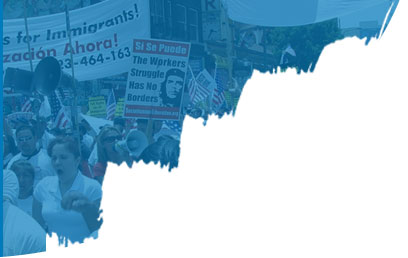
Europe’s Other Battleground
It is a well-known fact that human traffickers are the worst kind of opportunists, targeting the most vulnerable populations – children and young women, immigrants, and those suffering from economic hardship. Times of political and social unrest often present unchecked opportunities for them, as overwhelmed governments and law enforcement officials are focused on dealing with the immediate crises before them. For evidence of this we need look no further than the COVID-19 pandemic and the resulting economic fallout, which placed more people at risk of being trafficked. Anti-trafficking advocates have since gone into overdrive; for example, the UNDOC has established grants and services for victims, as well as studies to more accurately assess risk. In addition, a Women’s Leaders Network, created under UNODC Global Action against Trafficking in Persons and Migrant Smuggling for the Middle East and Asia, will focus specifically on pandemic-related conditions that may contribute to trafficking and will certainly inform efforts to prevent it moving forward.
The problem is, other devastating situations will continue to spring up overnight, each with its own unique challenges. Right now, anti-trafficking advocates are particularly concerned with the threat to refugees – 2.5 million and growing each day – who are fleeing Ukraine. The vast majority of them are women and children traveling alone while male family members stay behind to fight. Some are attempting to reach relatives in other nations, others are just trying to get to safety. Organizations and individuals are stepping up to help, which unfortunately has created yet another opportunity for traffickers, who are posing as good Samaritans.
In fact, there have already been numerous reports of suspicious people and groups approaching refugees with offers of free shelter, transportation, and job opportunities. In Poland, one man was hanging around a refugee camp, then quickly disappeared when it was noticed that he was only offering help to women and children, while another is being held for the rape of a nineteen-year-old female refugee after she accepted his promise of a safe place to stay. These and other incidents have sparked the efforts of government officials in various nations, including Romania, where officers in plain clothes began chasing men from the border after they were overheard offering rides to women. Former members of the French Foreign Legion are volunteering to perform similar services at the Polish border, and in Berlin, roughly a thousand miles away from Ukraine, the police department has posted warnings to refugees on social media.
Trafficking is an insidious crime that will be eradicated only through the vigilance and collaboration of officials, advocates, and everyday people. Those far removed from it may wonder what they can possibly do to help, especially when the crisis is half a world away. The answer is to support the efforts of those on the frontlines, and regularly share information with their networks to educate potential victims and direct them to the legitimate services they need.
